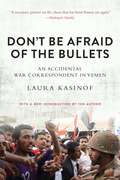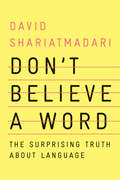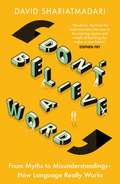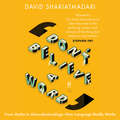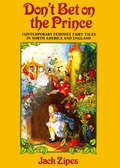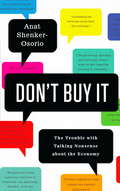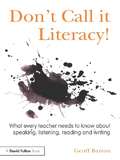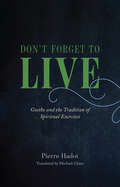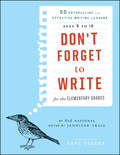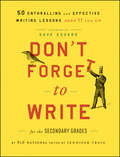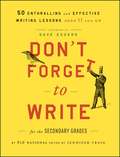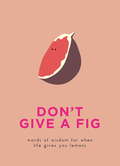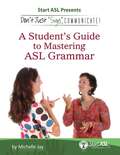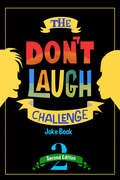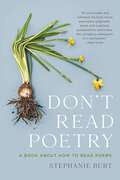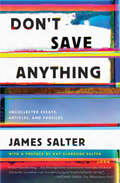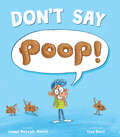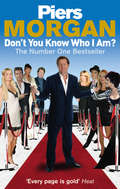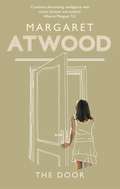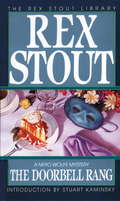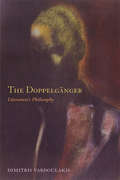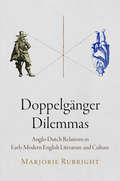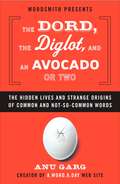- Table View
- List View
Don't Be Afraid of the Bullets: An Accidental War Correspondent in Yemen
by Laura KasinofLaura Kasinof studied Arabic in college and moved to Yemen a few years later--after a friend at a late-night party in Washington, DC, recommended the country as a good place to work as a freelance journalist. When she first moved to the capital city of Sanaa in 2009, she was the only American reporter based in the country. She quickly fell in love with Yemen’s people and culture, and even found herself the star of a local TV soap opera. When antigovernment protests broke out in Yemen in 2011, part of the revolts sweeping the Arab world at the time, she contacted the New York Times to see if she could cover the rapidly unfolding events for the newspaper. Laura never planned to be a war correspondent, but found herself in the middle of brutal government attacks on peaceful protesters. As foreign reporters were rounded up and shipped out of the country, Laura managed to elude the authorities but found herself increasingly isolated--and even more determined to report on what she saw. With a new foreword by the author about what has happened in Yemen since the book’s initial publication, Don’t Be Afraid of the Bullets is a fascinating and important debut by a talented young journalist.
Don't Believe a Word: The Surprising Truth About Language
by David ShariatmadariA linguist’s entertaining and highly informed guide to what languages are and how they function. Think you know language? Think again. There are languages that change when your mother-in-law is present. The language you speak could make you more prone to accidents. Swear words are produced in a special part of your brain. Over the past few decades, we have reached new frontiers of linguistic knowledge. Linguists can now explain how and why language changes, describe its structures, and map its activity in the brain. But despite these advances, much of what people believe about language is based on folklore, instinct, or hearsay. We imagine a word’s origin is it’s “true” meaning, that foreign languages are full of “untranslatable” words, or that grammatical mistakes undermine English. In Don’t Believe A Word, linguist David Shariatmadari takes us on a mind-boggling journey through the science of language, urging us to abandon our prejudices in a bid to uncover the (far more interesting) truth about what we do with words. Exploding nine widely held myths about language while introducing us to some of the fundamental insights of modern linguistics, Shariatmadari is an energetic guide to the beauty and quirkiness of humanity’s greatest achievement.
Don't Believe A Word: The Surprising Truth About Language
by David Shariatmadari***'Wonderful. You finish the book more alive than ever to the enduring mystery and miracle of that thing that makes us most human' STEPHEN FRY'Most popular books on language dumb down; Shariatmadari's smartens things up, and is all the more entertaining for it' THE SUNDAY TIMES, a Book of the Year'A meaty, rewarding and necessary read' GUARDIAN'Fascinating and thought-provoking . . . crammed with weird and wonderful facts . . . for anyone who delights in linguistics it's a richly rewarding read' MAIL ON SUNDAY ***- A word's origin doesn't tell you what it means today- There are languages that change when your mother-in-law is present- The language you speak could make you more prone to accidents- There's a special part of the brain that produces swear wordsTaking us on a mind-boggling journey through the science of language, linguist David Shariatmadari uncovers the truth about what we do with words, exploding nine widely-held myths about language while introducing us to some of the fundamental insights of modern linguistics.
Don't Believe A Word: The Surprising Truth About Language
by David Shariatmadari***'Wonderful. You finish the book more alive than ever to the enduring mystery and miracle of that thing that makes us most human' STEPHEN FRY'Most popular books on language dumb down; Shariatmadari's smartens things up, and is all the more entertaining for it' THE SUNDAY TIMES, a Book of the Year'A meaty, rewarding and necessary read' GUARDIAN'Fascinating and thought-provoking . . . crammed with weird and wonderful facts . . . for anyone who delights in linguistics it's a richly rewarding read' MAIL ON SUNDAY ***- A word's origin doesn't tell you what it means today- There are languages that change when your mother-in-law is present- The language you speak could make you more prone to accidents- There's a special part of the brain that produces swear wordsTaking us on a mind-boggling journey through the science of language, linguist David Shariatmadari uncovers the truth about what we do with words, exploding nine widely-held myths about language while introducing us to some of the fundamental insights of modern linguistics.
Don't Bet on the Prince: Contemporary Feminist Fairy Tales in North America and England
by Jack ZipesFirst published in 1987. Routledge is an imprint of Taylor & Francis, an informa company.
Don't Buy It: The Trouble with Talking Nonsense about the Economy
by Anat Shenker-OsorioAfter everything that’s happened, how is it possible that conservatives still win debates about the economy? Time and again the right wins over voters by claiming that their solutions are only common sense, even as their tired policies of budgetary sacrifice and corporate plunder both create and prolong economic disaster. Why does the electorate keep buying what they’re selling? According to political communications expert Anat Shenker-Osorio, it’s all about language-and not just theirs, but ours. InDon’t Buy ItShenker-Osorio diagnoses our economic discourse as stricken with faulty messages, deceptive personification, and, worst of all, a barely coherent concept of what the economy actually is. Opening up the business section of most newspapers or flipping on cable news unleashes an onslaught of economic doomsaying that treats the economy as an ungovernable force of nature. Alternately, by calling the economy "unhealthy” or "recovering” as we so often do, we unconsciously give it the status of a living being. No wonder Americans become willing to submit to any indignity required to keep the economy happy. Tread lightly, we can’t risk irritating the economy! Cutting through conservative myth-making, messaging muddles, and destructive misinformation, Shenker-Osorio suggests a new way to win the most important arguments of our day. The left doesn’t have to self-destruct every time matters economic come to the fore-there are metaphors and frames that can win, and Shenker-Osorio shows what they are and how to use them. Don’t Buy Itis a vital handbook for seizing victory in the economic debate. In the end, it convincingly shows that radically altering our politics and policies for the better is a matter of first changing the conversation-literally.
Don't Call it Literacy!: What every teacher needs to know about speaking, listening, reading and writing
by Geoff Barton"Every teacher in English is a teacher of English," said George Sampson, one of the early school inspectors, back in 1921. It’s never been truer, or more relevant. Literacy has a major impact on young people’s life-chances and it is every teacher’s responsibility to help build their communication, reading and writing skills. However, this book isn’t just about literacy; it’s also about what great teachers do in their classrooms, about applying knowledge consistently across classrooms, in order to help pupils to become more confident in their subjects. This book shows every teacher – whatever your subject – the simple steps which could transform your students into better speakers, listeners, readers and writers. Harnessing a range of straightforward, but powerful techniques, it shows you how to help each student in your subject to improve their spelling, to use the key vocabulary of your subject more accurately and to speak, read and write with confidence like a historian, scientist, designer or mathematician. The book is structured into clear sections which are then divided into short, easy-to-absorb units on the classroom implications of what we know about literacy. Don’t Call it Literacy! also includes: language commentaries which exemplify points made by the author; talking points at the end of each unit for self-assessment; a glossary for non-specialists; subject specific vocabulary for building students’ word power; tutor time spellings lists; a reading list on teaching, language, literacy and education. Written by a leading authority in the field, this book will help both trainee and practising secondary school teachers to turn their classroom into literacy-friendly environments, increasing the motivation and achievement of their students.
Don't Forget the Oatmeal! A Supermarket Word Book, Featuring Jim Henson's Sesame Street Muppets
by B. G. FordJoin Bert, Ernie and Cookie Monster on a trip to the grocery store! How will Bert remember to buy the oatmeal he loves to eat every morning for breakfast? For January, the National Oatmeal Month.
Don't Forget to Live: Goethe and the Tradition of Spiritual Exercises (The France Chicago Collection)
by Pierre HadotThe esteemed French philosopher Pierre Hadot’s final work, now available in English. With a foreword by Arnold I. Davidson and Daniele Lorenzini. In his final book, renowned philosopher Pierre Hadot explores Goethe’s relationship with ancient spiritual exercises—transformative acts of intellect, imagination, or will. Goethe sought both an intense experience of the present moment as well as a kind of cosmic consciousness, both of which are rooted in ancient philosophical practices. These practices shaped Goethe’s audacious contrast to the traditional maxim memento mori (Don’t forget that you will die) with the aim of transforming our ordinary consciousness. Ultimately, Hadot reveals how Goethe cultivated a deep love for life that brings to the forefront a new maxim: Don’t forget to live.
Don't Forget to Write for the Elementary Grades
by 826 National StaffCreative strategies for getting young students excited about writing Don't Forget to Write for the Elementary Grades offers 50 creative writing lesson plans from the imaginative and highly acclaimed 826 National writing labs. Created as a resource to reach all students (even those most resistant to creative writing), the lessons range from goofy fun (like "The Other Toy Story: Make Your Toys Come to Life") to practical, from sports to science, music to mysteries. These lessons are written by experts, and favorite novelists, actors, and other celebrities pitched in too. Lessons are linked to the Common Core State Standards. A treasure trove of proven, field-tested lessons to teach writing skills Inventive and unique lessons will appeal to even the most difficult-to-reach students 826 National has locations in eight cities: San Francisco, New York, Los Angeles, Ann Arbor, Chicago, Seattle, Boston, and Washington DC 826 National is a nonprofit organization, founded by Dave Eggers, and committed to supporting teachers, publishing student work, and offering services for English language learners.
Don't Forget to Write for the Secondary Grades
by 826 National StaffFantastic strategies for getting high school students excited about writing This book offers 50 creative writing lesson plans from the imaginative and highly acclaimed 826 National writing labs. Created as a resource to reach all students (even those most resistant to creative writing), the off-beat and attention-grabbing lessons include such gems as "Literary Facebooks," where students create a mock Facebook profile based on their favorite literary character, as well as highly practical lessons like the "College Application Essay Boot Camp." These writing lessons are written by experts--and favorite novelists, actors, and other entertainers pitched in too. Road-tested lessons from a stellar national writing lab Inventive and unique lessons that will appeal to even the most difficult-to-reach students Includes a chart linking lessons to the Common Core State Standards 826 National is an organization committed to supporting teachers, publishing student work, and offering services for English language learners.
Don't Forget to Write for the Secondary Grades: 50 Enthralling and Effective Writing Lessons (Ages 11 and Up)
by Jennifer TraigFantastic strategies for getting high school students excited about writing. This book offers 50 creative writing lesson plans from the imaginative and highly acclaimed 826 National writing labs. Created as a resource to reach all students (even those most resistant to creative writing), the off-beat and attention-grabbing lessons include such gems as "Literary Facebooks," where students create a mock Facebook profile based on their favorite literary character, as well as highly practical lessons like the "College Application Essay Boot Camp. " These writing lessons are written by experts-and favorite novelists, actors, and other entertainers pitched in too. Road-tested lessons from a stellar national writing lab Inventive and unique lessons that will appeal to even the most difficult-to-reach students Includes a chart linking lessons to the Common Core State Standards 826 National is an organization committed to supporting teachers, publishing student work, and offering services for English language learners.
Don’t Give A Fig: Words of wisdom for when life gives you lemons
by Don’t Give a FigKnow someone who's as dramatic as a soap okra? Champion their 'shiitake happens' attitude with this little book of upbeat and adorkable fruit puns.#tatersgonnatateAbout the seriesThis cute and colourful series of fruit-pun-filled gift books are the perfect pick-me-ups for you, your friend or your partner in crime. Do you need to avocuddle, or are you grapeful for someone who's a bit of a melon? Then share the clove with these little books: AvoCuddle, WhataMelon, You are my Raisin for Living, Don't Give a Fig, I am Grapeful, You are 24 Carrot Gold.*veg, nuts and seeds are fair game
Dont Give A Fig: Words of wisdom for when life gives you lemons
by PyramidKnow someone who's as dramatic as a soap okra? Champion their 'shiitake happens' attitude with this little book of upbeat and adorkable fruit puns.#tatersgonnatateAbout the seriesThis cute and colourful series of fruit-pun-filled gift books are the perfect pick-me-ups for you, your friend or your partner in crime. Do you need to avocuddle, or are you grapeful for someone who's a bit of a melon? Then share the clove with these little books: AvoCuddle, WhataMelon, You are my Raisin for Living, Don't Give a Fig, I am Grapeful, You are 24 Carrot Gold.*veg, nuts and seeds are fair game
Don't Just Sign... Communicate!: A Student's Guide to Mastering ASL Grammar
by Michelle JayAre You Making Common Signing Errors? <p><p>Make no mistake about it... when venturing into the world of American Sign Language, the first thing you must understand is that ASL is its own language. It is different from English. ASL is also not like other Signing Systems. <p><p>Like any other Language, ASL contains its own unique rules of syntax, phonology, grammar, etc. To become fluent in the ASL language, you must first be armed with these essential rules and terminology. <p><p>Don't Just "Sign"... Communicate! methodically takes you, step-by-step, through the essentials of ASL Grammar to prepare you to truly and effectively communicate in and understand ASL. <p><p>This carefully outlined guide not only illustrates the importance of understanding ASL's overall differences in grammar, the topics are broken up into the six (6) major aspects of the language, making it that much easier for you to understand and follow! <p><p>Here's just a glimpse of what you'll find in this guide: <p>• Get the "inside scoop" about ASL -- Learn vocabulary concepts not taught in most ASL dictionaries and discover the most essential ASL grammar rules. <p>• Packed full with "must have" tools, a glossary of over 200 terms, and a grammar study sheet you'll use again and again! <p>• Everything you need in just one place... And answers to questions you may not even know to ask... <p><p>Regardless of your reasons for learning to communicate in ASL, once you have read this book with its expert advice and hints, you will truly be prepared to master the communication nuances of the ASL Language!
The Don't Laugh Challenge - 2nd Edition: Children's Joke Book Including Riddles, Funny Q&A Jokes, Knock Knock, and Tongue Twisters for Kids Ages 5, 6, 7, 8, 9, 10, 11, and 12 Year Old Boys and Girls; Stocking Stuffers, Christmas Gifts, Travel Games, Gift Ideas (Don't Laugh Challenge Series #2)
by Billy BoyBACK BY POPULAR DEMAND! BEST SELLER FOR KIDS JOKE BOOKS! Why shouldn't you download the iceberg app? It'll sync your phone! Laughter is medicine to the soul - which is exactly what your kids will be doing with our Don’t Laugh Challenge - 2nd Edition! The challenge is for the players to sit facing each other at eye level and take turns reading jokes to each other. Each laugh = 1 point! First person to 3 points is crowned the Don’t Laugh MASTER! This book is filled with hours of fun with friends or family and perfect for ages 5 and up! Give it as a gift or get your own and let the laughter begin! Game on!
Don't Read Poetry: A Book About How to Read Poems
by Stephanie BurtAn award-winning poet offers a brilliant introduction to the joys--and challenges--of the genreIn Don't Read Poetry, award-winning poet and literary critic Stephanie Burt offers an accessible introduction to the seemingly daunting task of reading, understanding, and appreciating poetry. Burt dispels preconceptions about poetry and explains how poems speak to one another--and how they can speak to our lives. She shows readers how to find more poems once they have some poems they like, and how to connect the poetry of the past to the poetry of the present. Burt moves seamlessly from Shakespeare and other classics to the contemporary poetry circulated on Tumblr and Twitter. She challenges the assumptions that many of us make about "poetry," whether we think we like it or think we don't, in order to help us cherish--and distinguish among--individual poems.A masterful guide to a sometimes confounding genre, Don't Read Poetry will instruct and delight ingénues and cognoscenti alike.
Don't Save Anything: Uncollected Essays, Articles, and Profiles
by James Salter"In Don’t Save Anything . . . Kay Eldredge Salter assembles her late husband’s bread–and–butter journalism—yet how delicious good bread and butter can be! . . . As always, Salter emphasizes simple, vivifying details." —Michael Dirda, The Washington Post One of the greatest writers of American sentences in our literary history, James Salter’s acute and glimmering portrayals of characters are built with a restrained and poetic style. The author of several memorable works of fiction—including Dusk and Other Stories, which won the PEN/Faulkner Award—he is also celebrated for his memoir Burning the Days and many nonfiction essays. In her preface, Kay Eldredge Salter writes, “Don’t Save Anything is a volume of the best of Jim’s nonfiction—articles published but never collected in one place until now. Though those many boxes were overflowing with papers, in the end it’s not really a matter of quantity. These pieces reveal some of the breadth and depth of Jim’s endless interest in the world and the people in it . . . One of the great pleasures in writing nonfiction is the writer’s feeling of exploration, of learning about things he doesn’t know, of finding out by reading and observing and asking questions, and then writing it down. That’s what you’ll find here.” This collection gathers Salter’s thoughts on writing and profiles of important writers, observations of the changing American military life, evocations of Aspen winters, musings on mountain climbing and skiing, and tales of travels to Europe that first appeared in The New Yorker, Esquire, People, Condé Nast Traveler, the Aspen Times, among other publications.
Don't Say Poop!
by Jimmy Matejek-MorrisEveryone Poops meets The Book with No Pictures in this irresistibly naughty read-aloud. When you get the urge to say you-know-what, don't. DON'T SAY POOP!Why say a vile word like poop when you could say humdrum bum crumbs, float-or-sinker, major stinker, sometimes mushy from your tushy, or smelly belly funky jelly. See how much nicer that is? This silly book of tongue twisters will have kids doubled over as they learn some alternatives to their favorite potty words. Perfect for reading aloud, and for reading again and again!
Don't You Know Who I Am?: Insider Diaries of Fame, Power and Naked Ambition
by Piers Morgan'They say you can always remember where you where when pivotal moments happen, such as losing your virginity or Elvis dying. Let me add another to the list: the moment I sang a duet to the the "Macarena" with Timmy Mallett, live to millions of people...'Sacked from his high-profile job as a national newspaper editor, Piers Morgan dived helplessly into the world of celebrity. But even twenty years of commenting on the lives of the rich and famous couldn't prepare him for the extraordinary world he uncovered...A riveting, scandelous and brutally honest account of one man's quest for celebrity, Don't You Know Who I Am? lifts the lid on the egos and outrageous behaviour of everyone from Paris Hilton to Cherie Blair, Kate Moss to the legend that is the Hoff.
The Door: Poems
by Margaret AtwoodBy the author of The Handmaid's Tale and DearlyTHE DOOR is Margaret Atwood's first book of poetry since the 1995 MORNING IN THE BURNED HOUSE. Its lucid yet urgent poems range in tone from lyric to ironic to meditative to prophetic, and in subject from the personal to the political viewed in its broadest sense. They investigate the mysterious writing of poetry itself, as well as the passage of time and our shared sense of mortality. As the New York Times has said, 'Atwood's poems are short, glistening with terse, bright images. . . ' A brave and compassionate book, THE DOOR interrogates the certainties that we build our lives on.'One of the best books by one of the best poets writing in English' TLS
The Doorbell Rang (Nero Wolfe #41)
by Rex StoutHired to help society widow Rachel Bruner foil bothersome Feds, Nero Wolfe and his able assistant Archie get in over their heads with highly trained G-men who are adept at bugs, tails, and threats.
The Doppelganger: Literature's Philosophy
by Dimitris VardoulakisThe Doppelgänger or Double presents literature as the "double" of philosophy. There are historical reasons for this. The genesis of the Doppelgänger is literature's response to the philosophical focus on subjectivity. The Doppelgänger was coined by the German author Jean Paul in 1796 as a critique of Idealism's assertion of subjective autonomy, individuality and human agency. This critique prefigures post-War extrapolations of the subject as decentred. From this perspective, the Doppelgänger has a "family resemblance" to current conceptualizations of subjectivity. It becomes the emblematic subject of modernity. This is the first significant study on the Doppelgänger's influence on philosophical thought. The Doppelgänger emerges as a hidden and unexplored element both in conceptions of subjectivity and in philosophy's relation to literature. Vardoulakis demonstrates this by employing the Doppelgänger to read literature philosophically and to read philosophy as literature. The Doppelgänger then appears instrumental in the self-conception of both literature and philosophy.
Doppelganger Dilemmas: Anglo-Dutch Relations in Early Modern English Literature and Culture
by Marjorie RubrightThe Dutch were culturally ubiquitous in England during the early modern period and constituted London's largest alien population in the second half of the sixteenth century. While many sought temporary refuge from Spanish oppression in the Low Countries, others became part of a Dutch diaspora, developing their commercial, spiritual, and domestic lives in England. The category "Dutch" catalyzed questions about English self-definition that were engendered less by large-scale cultural distinctions than by uncanny similarities. Doppelgänger Dilemmas uncovers the ways England's real and imagined proximities with the Dutch played a crucial role in the making of English ethnicity.Marjorie Rubright explores the tensions of Anglo-Dutch relations that emerged in the form of puns, double entendres, cognates, homophones, copies, palimpsests, doppelgängers, and other doublings of character and kind. Through readings of London's stage plays and civic pageantry, English and Continental polyglot and bilingual dictionaries and grammars, and travel accounts of Anglo-Dutch rivalries and friendships in the Spice Islands, Rubright reveals how representations of Dutchness played a vital role in shaping Englishness in virtually every aspect of early modern social life. Her innovative book sheds new light on the literary and historical forces of similitude in an era that was so often preoccupied with ethnic and cultural difference.
The Dord, the Diglot, and an Avocado or Two
by Anu GargFrom the creator of the popular A. Word. A. Day e-mail newsletter A collection of some of the most interesting stories and fascinating origins behind more than 300 words, names, and terms by the founder of WordSmith. org. Did you know:There's a word for the pleasant smell that accompanies the first rain after a dry spell? Petrichor, combining petros (Greek for stone) and ichor (the fluid that flows in the veins of Greek gods). An illeist is one who refers to oneself in the third person. There's a word for feigning lack of interest in something while actually desiring it: accismus. For any aspiring deipnosophist (a good conversationalist at meals) or devoted Philomath (a lover of learning), this anthology of entertaining etymology is an ideal way to have fun while getting smarter.
